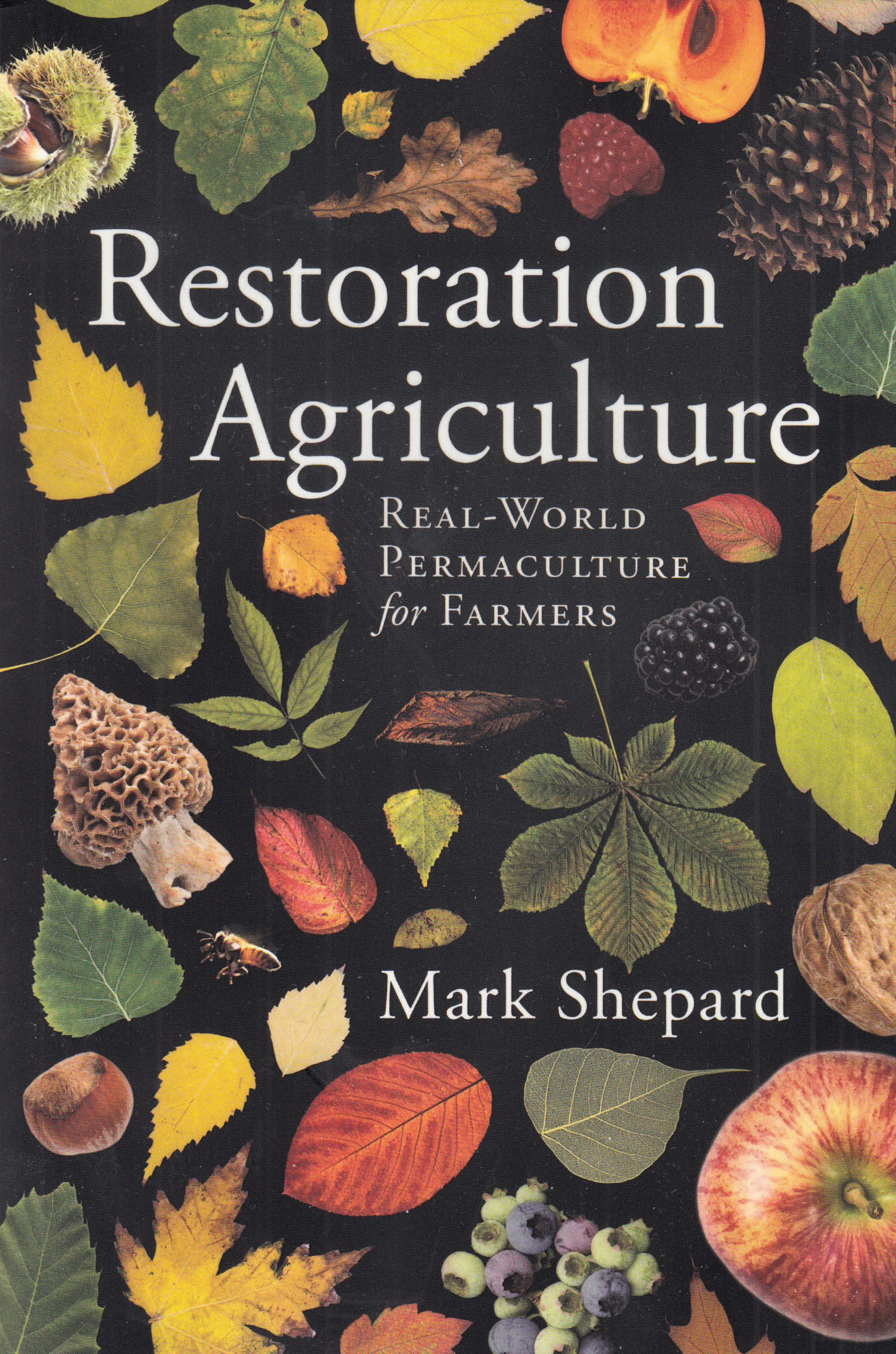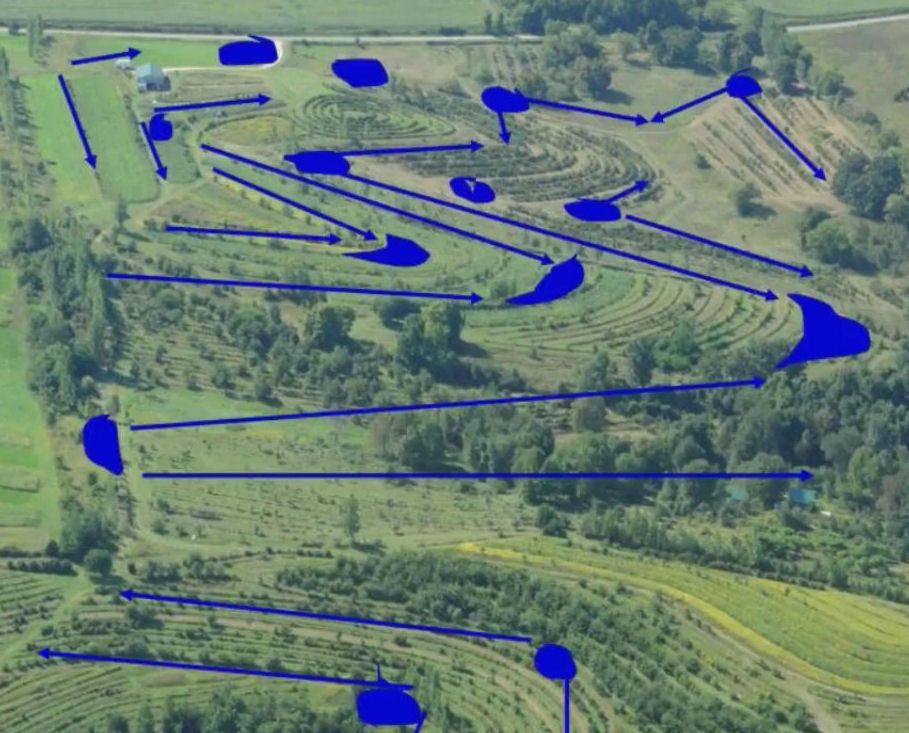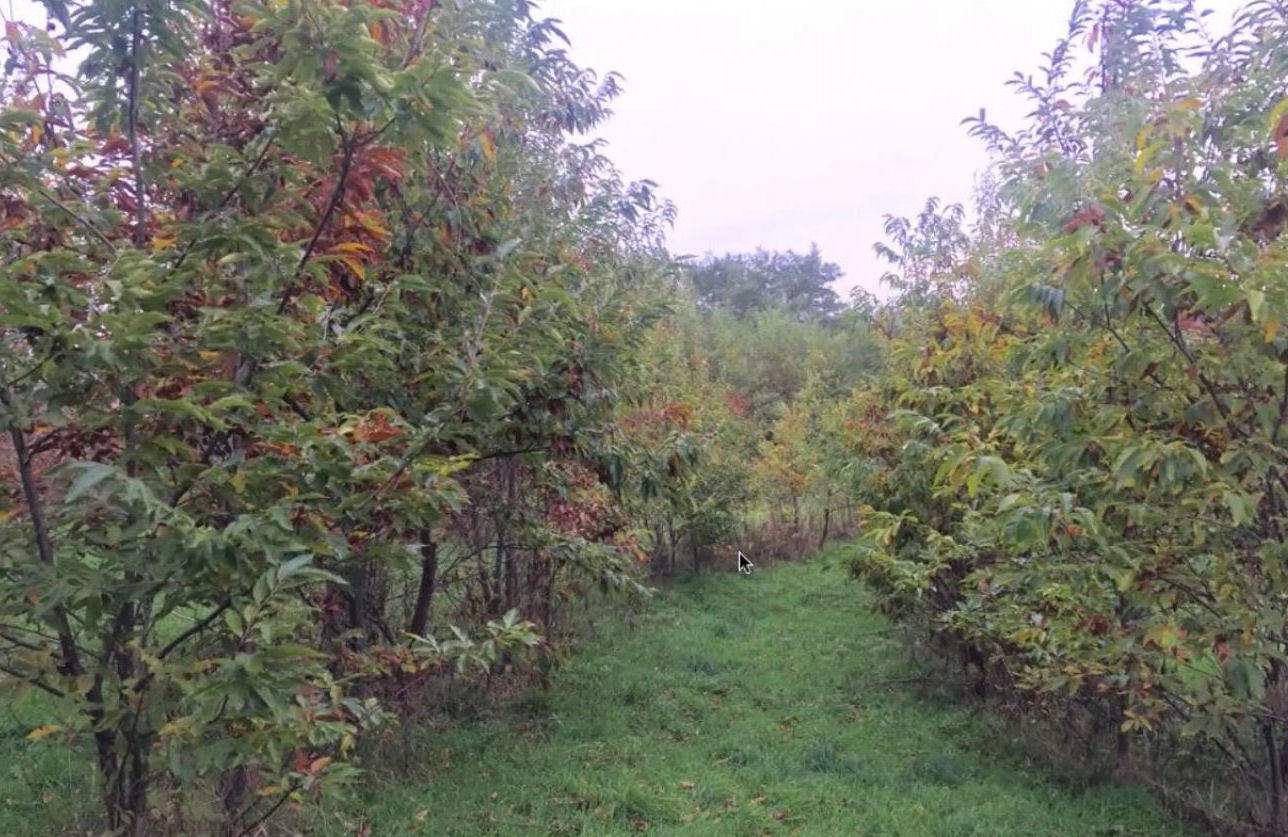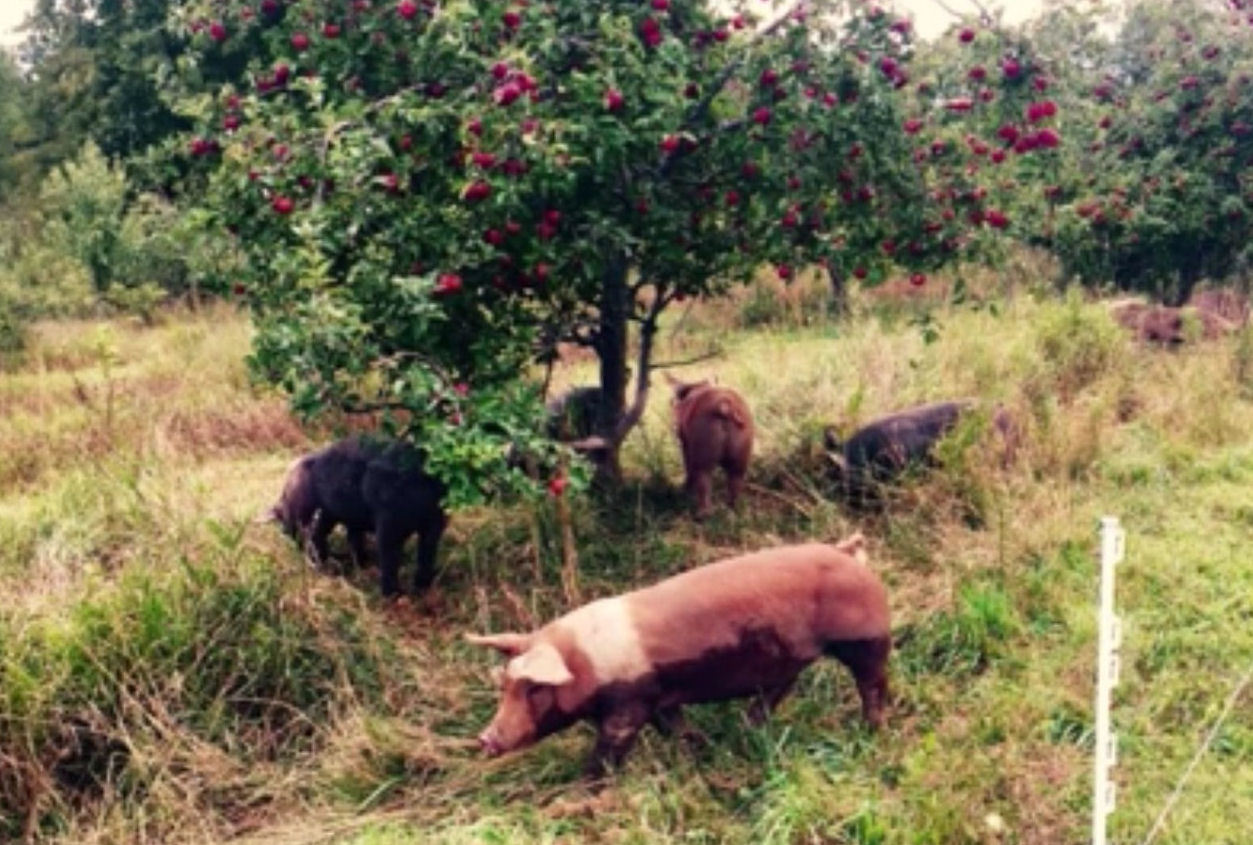Farm Business Plan
THREE STORY FARM
Lisa Ripperton
Ithaca, NY
Vision and Mission
We are restoring degraded land to a productive state that nourishes both the humans and the wildlife that share the landscape.
As ecosystem managers we pay special attention to the flow of water through our landscape and its retention in the soil, using earthworks, cover crops, and subsoiling.
We work to capture as much sunlight as possible and through the process of photosynthesis, transfer carbon to the soil, with the planting of diverse perennial crops in multi-storied systems that mimic natural plant communities in our area, and minimizing the amount of bare soil exposed.
We aim to integrate livestock into our system as soon as we can, realizing that they serve vital ecosystem functions by recycling nutrients and disturbing the soil.
We aim to make our farm as resilient as possible, so that it can continue to provide food far into the future, and adapt as climate changes.
On our farm we strive to connect as many people as possible to the local production of food and its processing for later consumption.
We have a growing number of customers who pick their own produce from the broad assortment of perennial crops available at our farm, giving them ample opportunity to connect with nature while moving through an aesthetically pleasing landscape.
We are sharing our journey of restoring degraded land with a broader audience through tours given at EcoVillage, an online blog, and educational opportunities in the classroom and in the field.
Business Concept

Inspired by Mark Shepard’s book Restoration Agriculture, we are creating a demonstration site for restoring degraded land to productivity.
We integrate perennial crops, fungus, livestock, and pollinators to produce an abundance of nutritious food for humankind, while at the same time restoring critical ecosystem services such as carbon sequestration, water infiltration, nutrient cycling, and biodiversity.
Our Setting
EcoVillage at Ithaca is a cohousing community located on 175 acres two miles west of Ithaca, NY.
The one hundred dwellings and associated infrastructure are clustered in three neighborhoods on 30 acres in the center of the land, leaving 145 acres of open space on the periphery.
About 50 acres that are heavily wooded and 40 that are shrubby have been set aside for wildlife and recreational use.
Three small farms occupy 25 acres, with 30 more acres reserved for future agricultural projects.
Steps in implementing our Restoration Agriculture system

Implement a comprehensive water management system
Select and plant nut trees adapted to our region and conditions at our site


Interplant with small fruit trees, fruiting shrubs, and perennial vegetables
Establish pasture, then integrate livestock into our silvopasture system

Equipment and Infrastructure
Access to following equipment will be needed:
Tractor
Key-Line Plow
Brush Hog
No-Till Drill
Flail Chopper
Will try to borrow or rent for first few years.
Shed for tools and supplies will likely be needed early on.
Work Force
3 farm owners
Friends of Three Story Farm, folks who have asked how they could help with this enterprise
Work Parties (EcoVillagers and others)
U-Pickers
Collaborators, who provide an ecosystem service and get a yield they can market
Financial Projections
The considerable start-up costs will be financed through savings of owners, and investments offered by individuals.
Expenses, other than purchase of farm equipment and trees and other plant material, will be minimal.
Income will also be minimal until plantings are mature enough for U-pick operation to begin.
Marketing Plan
Driven by our location in EcoVillage
2 farms with well-subscribed CSAs─
West Haven Farm: Annual Vegetables
Kestrel Perch: U-pick Berries
Within walking distance of our farm are 100 EcoVillage households who value locally produced food. Other West Hill neighbors nearby.
Communication through email and blog.
CUSTOMER FIRST APPROACH─Ask them what they would like us to supply
U-pick offerings to complement those already available through other farms
Co-ordinated picking times
Social Justice
Our farm will─
- Join Healthy Food for All
- Offer sliding scale for u-pick share
- Offer sliding scale for workshops
- Welcome collaborators of color
Critical Unresolved Issues
- How to set up a structure that accommodates 3 decision makers, a pool of investors, and possible collaborators
- How to establish pasture
- How to find mentors for our livestock operation
- How to acquire needed farm equipment at reasonable cost